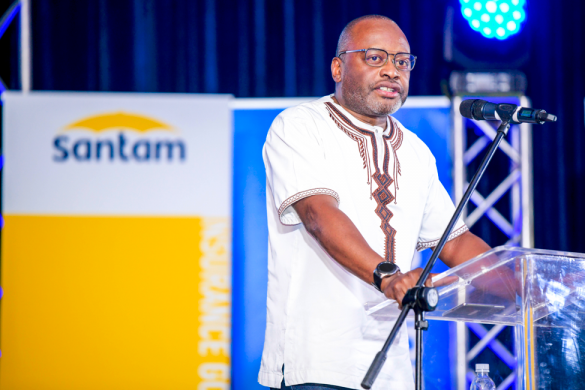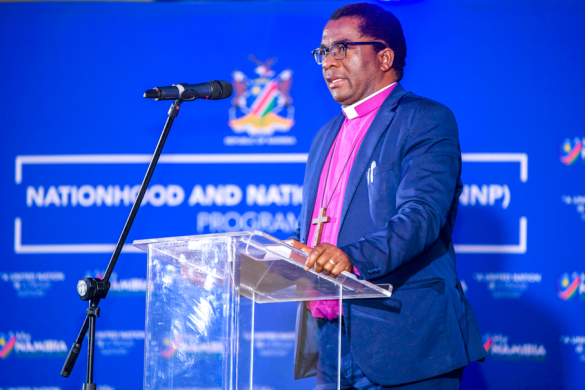BEIJING, Sept. 20 — Over 80 percent of all Chinese students have returned to China after finishing their education abroad since 2012, the Ministry of Education said Tuesday.
The 2020-2021 academic year saw international students from 195 countries and regions studying in China, up 35 percent from 2012, the ministry said.
China has signed agreements on mutual recognition of academic qualifications and degrees with 58 countries and regions, and established Confucius Institutes and Confucius Classrooms in cooperation with 159 countries and regions, according to the ministry.
International education cooperation has also been carried out in designated places in China, in partnership with international organizations, and within the framework of multilateral mechanisms, the ministry added.(Xinhua)
Advertise Here
Before we try to understand whether there is a case for retirement funds, we must first understand why this question has become more prominent over recent years.
Increased Cost and Administrative Burden Related to Retirement Funds
Over the past five years, there have been numerous changes to the retirement fund sector framework, that has impacted members’ retirement savings. These changes or additional requirements have introduced the unintended consequences of increased member cost and reduced investment returns on retirement savings. Here are some of the recent and significant changes in the retirement fund sector framework that have directly impacted the cost of retirement savings:
1. The introduction of the one ‘Chart of Accounts’ reporting requirement in 2018 has cost retirement funds between N$10 000 and N$40 000, depending on the size and complexity of the fund.
2. The Financial Institutions and Markets Act, Act No 2 of 2021 (FIMA) present the following additional cost for retirement funds:
a. Appointment of consultants to implement and/or ensure compliance with FIMA;
b. Increased Trustee remuneration to compensate them for the additional compliance requirements and penalties imposed by FIMA;
c. Increased Fidelity/Professional Indemnity cost to cover the significant penalties imposed by FIMA; and
d. More onerous administration and other service functions to meet FIMA requirements.
The increase in costs will have a direct, negative impact on members’ net retirement savings.
Retirement fund savings will also be negatively impacted by the following sector changes:
1. Increase in the annual pension fund levy, imposed by NAMFISA, effective 1 November 2017. The levies changed from N$250 per fund plus N$12 per member to an annual levy of 0.008% of total fund assets;
2. Amendment of the Pension Funds Act (24 of 1956) Regulations, that increased the local asset allocation requirement for investments from 35% to 45% in 2018; and;
3. A proposal introducing a 15% Value-added Tax (VAT) on asset manager fees.
The above framework and sector changes have negatively impacted retirement savings, directly affecting the goal of adequately saving for retirement in the following manner:
1. A lower net contribution towards retirement savings. Your net contribution is your total monthly retirement saving (both employee and employer) fewer costs and fees. And as the cost increase to legislative, framework, or sector changes, the net contribution reduces.
2. Lower real investment returns earned on retirement savings. The real investment return is your gross investment returns less investment cost and inflation. The impact of the above-mentioned changes is resulting in a lower likelihood of the growth of retirement savings exceeding inflation.
In Namibia, employers are not legally required to sponsor a retirement fund for their employees. As a result of increased costs and administrative burdens attached to retirement funds, more and more employers are assessing whether it is worthwhile to provide a retirement savings vehicle for their employees.
The benefits of investing in a retirement fund?
When assessing the current retirement savings environment and framework, we must appreciate that the Pension Funds Act, Act No 24 of 1956 (the PFA) and the Income Tax Act, Act No 24 of 1981 (the ITA) create extremely beneficial and secure conditions for an unparalleled savings vehicle. This stems from two unique legal frameworks applicable to retirement fund savings; namely the special protection afforded to retirement savings by the PFA, and the tax incentives offered by the ITA.
Legal protection
Let us first consider the protection provided by the PFA. Section 37A of the PFA states that “…no benefit provided for in the rules of a registered fund (including an annuity purchased or to be purchased by the said fund from an insurer for a member), or right to such benefit, or right in respect of contributions made by or on behalf of a member, shall notwithstanding anything to the contrary contained in the rules of such a fund, be capable of being reduced, transferred or otherwise ceded, or of being pledged or hypothecated, or be liable to be attached or subjected to any form of execution under a judgment or order of a court of law…”. This provision safeguards retirement fund benefits (payable to members as well as the beneficiaries of members who have passed away) from creditors.
Section 37C of the PFA requires that the Trustees determine how a retirement fund member’s death benefit will be allocated to his/her beneficiaries. In doing so, the Trustees ensure that all the member’s legal and factual dependants are considered for the allocation of the fund savings. This is not a requirement for other savings products that are not regulated by the PFA. This provision ensures that the most vulnerable members of society are afforded some protection when retirement fund death benefits are distributed.
Tax incentives
The tax incentives available to the retirement savings sector are threefold. Firstly, employer contributions toward retirement savings are exempted, it being the generally accepted practice for decades and not law. These contributions are therefore not included in the employee’s gross income when calculating taxable income. Furthermore, up to N$40 000 of the employee’s contribution to a retirement fund is non-taxable. Secondly, the investment income earned on retirement savings is tax exempted. This is not so for other saving vehicles. Thirdly, upon the retirement or death of a retirement fund member, there is favourable tax treatment with respect to the benefit payments as only a portion of the benefit is taxable.
Other benefits
There are many other benefits to investing in a retirement fund that should not be forgotten, these include:
- The management and oversight of retirement savings are conducted by a Board of Trustees who are required to have the necessary skills, experience, and resources to ensure that sound decisions are made on behalf of the retirement fund members.
- When saving in a retirement fund, together with many other members, the economies of scale result in reduced costs versus when you save in your personal capacity.
- Retirement funds must appoint an independent auditor and a suitably qualified valuator who should ensure that the retirement fund assets and liabilities are recorded correctly and managed on a sound financial basis.
- Your investment for a comfortable retirement is safe in that you cannot ‘withdraw’ from the savings for luxuries, travels, or renovations ahead of retirement, which can easily be done in another savings vehicle.
Is There Still a Case for Retirement Funds in Namibia?
YES! Despite the challenges of increasing costs and the lower returns, there is still, indeed, a case to be made for retirement funds as the benefits still outweigh the challenges by far.
WINDHOEK, Sept. 20 — Namibia’s Under-23 national football team coach Collin Benjamin on Monday evening named his final selection of 25 players for the U23 Africa Cup of Nations (AFCON) qualifier match against Angola.
The squad will lock horns with Angola on Wednesday at the 11 de November Stadium in Luanda, with the return leg slated for September 24 at the same venue.
According to a statement from the Namibia Football Association, the selected squad will depart for Luanda on Tuesday.
The U23 Africa Cup of Nations is scheduled for June 2023 in Morocco and will serve as a qualifying tournament for the Paris 2024 Olympics.(Xinhua)
Windhoek, Sept. 20 — The first Sanlam Men’s Conference 2022 concluded successfully this weekend, with over 1,000 attendees. The goal of the conference was to provide a forum for men who are both parts of the problem and part of the solution to discuss the topic of gender-based violence, which has far-reaching implications. “The overwhelmingly positive response demonstrates that gender-based discrimination and violence affect Namibians of all cultures and socioeconomic backgrounds,” said Denille Roostee, Marketing and Communication Manager at Sanlam. To alleviate capacity issues that prevented many people from entering the venue, the conference was also live streamed on various social media platforms. , “We are pleased that we could contribute in some small way to the creation of a platform alongside our co-sponsors and the Nationhood and National Pride program of the Ministry of Information, Technology, and Communication.” She continued, saying.
Gender-based violence is a violation of human rights, but it also has broader development implications. The World Bank estimates that the economic costs of lost productivity due to domestic violence range from 1.2 to 2% of GDP. Gender inequality, power abuse, and harmful norms all play a role. According to estimates, one in every three women will face sexual or physical violence.
The threat of GBV increases significantly during times of displacement and crisis for both men and women, girls and boys. Gender-based violence can cause sexual, physical, emotional, and financial harm in both public and private settings. Threats of violence, coercion, and manipulation are also mentioned. GBV includes intimate relationship violence, sexual violence, child marriage, female genital mutilation, and so-called “honour crimes.”
Emotional, financial, and verbal abuse are among the least talked about but most damaging types of abuse. Emotional abuse lowers a person’s self-esteem and undermines their confidence. Sanlam is an abbreviation for “living with confidence.” This is why initiatives like these are so closely related to what our brand represents.
Collaboration and integrity are two of Sanlam’s guiding principles. The conference, which DJ Munene conceptualized, was a success thanks to the generous assistance and collaboration of Santam, Chapungu-Kambako Safaris, Ubuntu Events and Technology, J&A Bakery, and Energy100 FM.
NEW DELHI, Sept. 20 — Decades after declaring cheetahs extinct from their Indian habitat, the Indian government last week formally reintroduced them from Namibia to the country for the first time.
The aim is to revive their lost population and provide them suitable environment in India again.
Last week, eight cheetahs, five females and three males, were flown all the way from Windhoek in Namibia to the central Indian state of Madhya Pradesh in a customized cargo plane. Upon their arrival at the state’s Gwalior airport, they were flown in a helicopter to Kuno National Park, their new home.
The felines were accompanied by biologists, wildlife experts and veterinarians during their transcontinental journey.
While the project appears quite challenging, the mission to revive the extinct species of cheetahs in India seems exciting at the same time.
The cheetahs were welcomed by Indian Prime Minister Narendra Modi, who released them to Kuno National Park from the enclosures. Each cheetah is fitted with a satellite radio collar to monitor its location, and a dedicated team of volunteers will monitor its movement.
Prior to extinction from India in 1952, cheetahs used to share space with other big cats like lions and tigers in the forests.
The Indian Prime Minister’s Office (PMO) described the reintroduction of cheetahs into India as “historic”, and stated their introduction would go a long way toward reviving open forest and grassland ecosystems in India.
Cheetah is the world’s fastest land animal, capable of running 113 km an hour. At present it is in 19 African countries and in Iran.
Officials said additional 12 cheetahs are scheduled to come to India from South Africa this year to boost India’s cheetah population.
Parveen Kaswan, an Indian Forest Service officer, said the next 20 years will be challenging and exciting vis-a-vis the survival of cheetahs in India.
According to Kaswan, not only cheetah but most of the charismatic animals were hunted in the old days by kings and the British.
“Until the Wildlife Protection Act 1972 was passed, it was very late. Cheetahs were already extinct from India,” he said.
Experts say conservation plans like reintroduction and rewilding are long-term projects.
“To have definitive opinions on whether they are good or bad ideas are not possible for at least 15 years. This is the average amount of time it takes for a species to adapt, rewild, breed and thrive well enough to become part of the new landscape to which they have been introduced,” writes Swati Thiyagarajan, conservation journalist on the reintroduction of cheetahs in India.
“Experts on both sides, Indian and African, are involved in this reintroduction and the animals will be very closely monitored and every opportunity will be made possible for the success of the programme, but ultimately it comes down to the animals themselves.”
Kuno National Park is a sprawling sanctuary spread over a 289-square-mile area. It has grasslands mixed in with forest cover and hilly terrain.
The prey available for the new cheetahs would be chitals, nilgai, sambar, wild pig, chinkara and others.(Xinhua)
Four big businesses control the financial sector of Namibia. All of these have close ownership and finance connections to South Africa.
The Namibian Dollar and the South African Rand are fixed at parity under the Common Monetary Area, or CMA, arrangement. The Nonbank Financial Institutions, or NBFI, are fairly substantial, making the Namibian Stock Exchange, or NSX, one of the biggest in Africa.
Many foreign brokers are operating in Namibia because the Namibia Financial Institutions Supervisory Authority, more popularly known as NAMFISA, does not explicitly regulate Forex brokers in Namibia.
1. AvaTrade
Overview
AvaTrade is a prominent Forex broker that provides a user-friendly interface for copy trading. AvaTrade customers have access to several trading platforms. AvaTrade is regarded as a premier broker.
Pros and Cons
| PROS | CONS |
| A broad range of tradable instruments | High EURUSD and inactivity fees |
| MetaTrader 4 and 5 are available | |
| Excellent educational resources |
| Feature | Information |
| Regulation | Central Bank of Ireland, MiFID, ASIC, BVI |
| Minimum deposit from | $100 |
| Average spread from | 0.9 pips |
| Commissions from | No commission on Forex |
| Deposit/Withdrawal Fees | None |
| Maximum Leverage | 1:400 |
| Bonuses | First Deposit Bonus |
| Customer Support | 24/5 – multilingual |
Open a Free Trading Account Now
2. FXCM
Overview
FXCM was founded in 1999 and offers traders the opportunity to trade in global markets by offering a variety of financial instruments. FXCM offers traders competitive trading conditions and many flexible trading platforms.
| PROS | CONS |
| Well regulated | No US Clients |
| MetaTrader 4 | EU clients restricted to 1:30 leverage |
| Commission free trading | No fixed spread accounts |
| Client funds kept in segregated accounts | |
| Access to Auto Chartist |
| Feature | Information |
| Regulation | FCA, ASIC, CySEC and FSCA |
| Minimum deposit from | $100 |
| Average spread from | 0.2 pips |
| Commissions from | $0.10 on EUR/USD |
| Deposit/Withdrawal Fees | None |
| Maximum Leverage | 1:400 for non-EU/UK clients |
| Bonuses | None |
| Customer Support | 24/5 |
3. FXPRIMUS
Overview
FXPRIMUS is a reputable ECN and STP broker that has been in operation since 2009. It has offices in Cyprus, South Africa, and Vanuatu with respective regulations through CySEC, FSCA, and VFSC.
Traders have access to more than 120 financial instruments which can be traded through MetaTrader 4 and Platinum API in conjunction with the competitive trading conditions that FXCM offers its traders.
| PROS | CONS |
| Well regulated | No US Clients |
| Commission-free trading on some accounts | Restricted leverage of 1:30 for EU-clients |
| Negative balance protection | No fixed spread accounts |
| Need a VIP account to gain access to the best trading conditions |
| Feature | Information |
| Regulation | CySEC, FSCA, VFSC |
| Minimum deposit from | $500 |
| Average spread from | 0.0 pips |
| Commissions from | $10 per lot |
| Deposit/Withdrawal Fees | None |
| Maximum Leverage | 1:1000 |
| Bonuses | Yes |
| Customer Support | 24/5 |
4. HotForex
Overview
HotForex is a multi-asset broker which is headquartered in Cyprus but has regulation through CySEC, FCA< DFSA and FSCA. It offers the trade of a wide range of tradable assets.
HotForex offers trading through powerful and flexible platforms and the broker is known for its low trading and non-trading fees and offers a variety of accounts including being a forex broker with a ZAR account.
| PROS | CONS |
| Well regulated | No US Clients |
| Numerous account types | |
| Competitive trading conditions |
| Feature | Information |
| Regulation | CySEC, FCA, DFSA, FSCA |
| Minimum deposit from | $5 |
| Average spread from | 0.0 pips |
| Commissions from | $3 |
| Deposit/Withdrawal Fees | None |
| Maximum Leverage | 1:1000 |
| Bonuses | Yes |
| Customer Support | 24/5 |
5. IG
Overview
In operation since 1974, IG is a well-established broker which has a long and rich history of offering comprehensive trading solutions and services to traders from around the world.
Traders have a choice of more than 16,000 financial instruments which can be traded through flexible, powerful trading platforms in addition to expecting competitive trading conditions and the best quality customer support.
| PROS | CONS |
| Well-regulated | High minimum deposit requirement |
| Various account options | |
| Over 16,000 financial instruments | |
| Competitive trading conditions |
| Feature | Information |
| Regulation | FCA, CFTC, NFA, BaFin, FINMA, ASIC, FMA, MAS, FSA, FSCA, DFSA, JFSA, METI, MAFF |
| Minimum deposit from | $250 |
| Average spread from | 0.1 pips |
| Commissions from | 0.10% CFS EU |
| Deposit/Withdrawal Fees | None |
| Maximum Leverage | 1:200 |
| Bonuses | None |
| Customer Support | 24/5 |
Orange 5G Lab Abidjan offers services and support to economic players devised with expert partners such as Huawei, Nokia and ZTE.
ABIDJAN, Sept. 20 — Orange (www.Orange.com) Côte d’Ivoire has opened its Orange 5G Lab, devoted to digital professionals, start-ups and businesses. This event took place on Tuesday, September 20 at the Deux Plateaux Smart Store (Cocody, Abidjan). It was attended by Mr. Amadou Coulibaly, Minister of Communication and Digital Economy, Government Spokesperson, Ms. Christel Heydemann, CEO of the Orange Group, Mr. Jérôme Hénique, CEO of Orange Middle East and Africa, and Mr. Mamadou Bamba, CEO of Orange Côte d’Ivoire.
The 5G network roll-out across Côte d’Ivoire is scheduled for 2023, so Orange Côte d’Ivoire is thinking ahead by providing local businesses with a new collaborative space that is fully equipped and dedicated to practical applications. Orange 5G Lab Abidjan offers services and support to economic players devised with expert partners such as Huawei, Nokia and ZTE. The free and customized Orange 5G Lab system is built around two concepts :
- Allowing economic players to discover new possibilities enabled by 5G and the way it could positively impact their activities.
- With our 5G experts, supporting innovative businesses keen to experiment with 5G’s potential for their product or service.
This site will host a 5G demo space for different business sectors, conferences, training, co-working sessions, co-innovation and practical 5G application sessions.
“We recognize that 5G is a new opportunity for businesses eager to diversify, optimize or revitalize their activity. To support them, it is crucial that this space offers ready-to-use tools and allows the results of these experiments to be assessed in a practical fashion. This initiative reflects our historic commitment to digital inclusion. We aim to foster innovation and help create value within the local ecosystem,” confirms Mamadou Bamba, CEO of Orange Côte d’Ivoire.
Jérôme Hénique, CEO of Orange Middle East and Africa (OMEA) explains: “Like the Orange Digital Center opened last year, the Orange 5G Lab will allow faster adoption of this technology by local businesses. They will not only be able to benefit from the expertise and tools available here, in Abidjan, but they will also have access to feedback from more than 1,500 businesses and local authorities that have had access to an Orange 5G Lab worldwide – including 127 that have already been able to set up testing based around their own practical examples.”
For Christel Heydemann, CEO of the Orange Group: “As a leader in the telecommunications sector and a key player in technology innovation, the Orange Group welcomes this new Orange 5G Lab in West Africa. It confirms our local influence and commitment to encouraging digital uses requiring high-speed internet, notably for start-ups and businesses. Orange has already opened 15 Orange 5G Labs, including 2 in Africa, and it will continue to drive this initiative throughout the Group’s footprint.”
Distributed by APO Group on behalf of Orange.
Promising recent resource finds in Mozambique and Namibia as well as Cote d’Ivoire, Uganda and Tanzania – bode well for Africa’s future.
CAPE TOWN, Sept. 20 — Liquified Natural Gas (LNG) offers a unique energy opportunity for Africa, writes Niall Kramer, former Shell and Chevron executive and ex-CEO of the SA Oil & Gas Alliance. It comes at a lower environmental cost than oil or coal – and it could drive an enormous resource boom.
Promising recent resource finds in Mozambique and Namibia – as well as Cote d’Ivoire, Uganda and Tanzania – bode well for Africa’s future. Exploration is being pursued with renewed vigour, and the world’s energy companies are eyeing the continent with keen interest.
The potential for liquefied natural gas is especially attractive – as new liquefaction and regasification technologies have made LNG a competitive means of energy distribution. The recent finds also offer the promise of an LNG boom that could change the fortunes of many African nations, while also meeting their people’s energy needs – at a lower environmental cost than other hydrocarbons.
The key is unlocking these opportunities and providing the policy framework to enable them.
For South Africa, refining the Upstream Petroleum Resources Development Bill into a commercially competitive and certain Act would be a great step towards enabling these opportunities.
After that, another clear solution would be partnering with A-list international investing explorers, who come with their own balance sheets, skills, experience, and repetitional exposure to do the job.
Even while partnering with foreign organisations, SA can retain control of our resource wealth through the way we negotiate licence terms of (free) carry, tax rates, development commitments, tenure, skills readiness and harmonised regulations.
SA skills shortage
Such partnerships would present an opportunity to grow South Africa’s skills base in the oil and gas sector. Public-private partnerships are a good way for South Africans to gain international qualifications. Trainees could be reskilled miners, artisans, and technicians in a declining industry or a younger tranche.
If we manage to attract A-list explorers, we can get some holes in the ground, drill for data and then make empirical, evidence-based decisions on future production viability.
Mozambique is an example of what can be achieved by partnering with international energy firms to unlock domestic resource potential. Our eastern neighbour is about to export Eni’s first offshore-platform cargoes, and the Cabo Delgado Total onshore plant operation in Afungi looks set to restart.
Billions have been invested, and analysts are predicting that Namibia will become the next big oil and gas player on the global scene.
A recent discovery in the offshore Orange Basin of Namibia’s west coast will likely also yield billions for Namibia. Both Shell and Total’s consortia have massive Namibia finds at Venus1 and Graff1. Industry insiders are gushing with superlatives at what a game changer this find will be for Namibia. The find has been called the biggest ever in Sub-Saharan Africa.
The critical issue for South Africa is that this game-changing find is in the extreme south of Namibia’s territorial waters. Neighbouring offshore blocks in South African waters likely hold very similar potential.
Recent finds in the 11B/12B exploration block 175km off South Africa’s south coast already promise to be catalytic for South Africa. Properly developed, they could easily save PetroSA and give a massive boost to our economy, save forex, grow local business, and develop skills without depleting the fiscus.
But investors have other attractive global options. We need to ensure that South Africa becomes a practical investment destination compared to these rival opportunities.
What about renewables?
While we accelerate our move towards renewable energy, there remains a need to underpin the intermittency of wind and solar with reliable, dispatchable baseload power. We can do that with coal, as we do now. Or more economically, with around 30% fewer CO2 emissions by using liquified natural gas (LNG).
At a time when South Africa’s power-supply deficit has become self-evident, LNG also offers a short-term solution in that it can be imported, through the South African and Mozambican ports network, and plugged into pipeline infrastructure relatively quickly.
At the same time, we can continue expanding our encouraging PPP programme of rapidly expanding renewables, while also continuing with onshore and offshore exploration for domestic natural gas resources – of which there are already encouraging signs.
Perhaps, unfortunately, the world will need oil and gas well beyond mid-century to meet all of its energy needs. And of these options, gas is the less harmful. Gas will enable renewables at a lower environmental cost – granting us the medium-term energy independence to continue renewables investment. This is the “just transition” in practical action.
Realistically, fulfilling our energy needs means multiple generations and distribution technologies. In the short term, it will also sometimes be necessary to trade off climate commitments and energy provision. Here, LNG also offers a solution – the reliability of oil and coal, with smaller environmental impacts.
We must protect the planet and act responsibly. We must develop skills and transition to new-economy jobs. At the same time, there is no material quality of life and industrial development without energy.
As the ANC elective conference approaches, the governing party would do well to consider that oil-and-gas exploration could also provide CAPEX, infrastructure and thousands of jobs in the power sector – with even further downstream effects.
Right now, just under 10% of our power comes from renewables. The rest is mainly from coal. While this is changing, shifting demand and investment from coal is not proving easy. The policy framework, Integrated Resource Plan, Gas Master Plan and related licensing and regulatory instruments all need rapid simplification and integration to make investment attractive and easy.
Investment flows to the markets that are attractive, certain and ready. The forthcoming Africa Oil Week in Cape Town will be a great opportunity for South Africa to prove we are indeed open to the oil-and-gas business. We need international investment at scale – and LNG and oil and gas exploration can deliver this.
Distributed by APO Group on behalf of Africa Oil Week.
Katima Mulilo, Sept. 20 — Pieter Erwee, director of the Namibian Mathematics Institute (NMI), has praised Nedbank Namibia’s sponsorship of a two-day mathematics workshop held at Katima Mulilo.
The workshop last month introduced 22 senior secondaries (grades 10 and 11) mathematics teachers from various schools in the Zambezi educational region to a new mathematics guide called “Map Mathematics.”
The Namibian Mathematics Institute’s Map Mathematics is a hands-on teaching guide that covers a variety of mathematics topics using maps of Namibia and Africa.
“The N$68 000 sponsorship from Nedbank Namibia was part of a larger project,” Erwee explains.
Using this practical approach, the project at Katima Mulilo covered various mathematical topics such as distance, speed, duration, ratios, rates, bearings, vectors, and trigonometry to ensure that learners understand the importance of mathematics in everyday life.
“The Namibian Mathematics Institute is a small non-profit organization with no full-time employees.” “Depending on the availability of sponsorships, I run mathematics projects across the country,” Erwee adds.
Each teacher received 60 of these map mathematics sets at the end of the workshop in Katima Mulilo to share with fellow educators and implement at their respective schools.
“This is also a proven approach to remove the typical fear of mathematics in learners,” said Erwee
Erwee develops practical mathematics teaching aids for mathematics teachers.
According to the National Institute for Education Development (NIED), the teaching of mathematics in Namibia has been a challenge since independence in 1990. The learners’ performance in mathematics at the senior secondary school level has been unimpressive.
The government has since developed the Education and Training Sector Improvement Programme (ETSIP), which addresses a wide range of issues, especially with key interventions in subjects such as mathematics, science and English.
Erwee, who until six years ago was still a full-time employee at a university, retired to help improve the standard of mathematics in high school.
“Mathematics is my passion, and it is the most problematic subject for learners in Namibia. I train teachers and provide them with these materials to implement in school. The feedback I get from teachers is always encouraging,” said Erwee.
The Namibian Mathematics Institute’s work was however impacted by the effects of COVID-19.
“I did not conduct workshops last year because of COVID restrictions,” said Erwee.
Erwee said the Namibian Mathematics Institute has developed a range of practical mathematics teaching aids over the past 20 years of its existence, in an attempt to improve learner performance at different school levels.
He emphasised the need to improve the mathematics performance of learners by the end of the senior secondary phase (grade 11) because only learners achieving a C-symbol or better in the final examination will be allowed to enrol for further mathematical studies in Grade 12 for example at the NSSCAS level.
According to Erwee, the positive attitude of participants experienced during the workshop was very encouraging, especially in light of challenging working conditions i.e., many of them have
overcrowded classrooms of over 50 learners.
Speaking on Nedbank’s involvement, Selma Kaulinge Manager for Communication and PR at Nedbank said, “Our social responsibility forms part of our Nedbank purpose of being money experts who do good for staff, customers and communities. We encourage a culture of giving as it strengthens the communities in which we live and work. By uniting communities, we can bridge some of the social, economic and political gaps in our country. Thus, empowering young minds under the Namibian Mathematics Institute remains at the heart of what we do.”
By Josef Kefas Sheehama
Honourable Tom Alweendo, Mines and Energy Minister, has revealed that the government is looking to cancel the Namcor levy by removing the fuel levy and, as a result, creating a wider range of discounted offerings at the pumps. The estimated Namcor levy was 7.6 cents per litre of fuel sold in Namibia before being reduced to 3.8 cents to ease the burden on consumers.
The policy changes that affect fuel prices will affect households that consume fuels. Furthermore, fuel levy increases will not only affect the prices of fuels consumed by households but also the prices of other goods consumed because of the impact on the fuel inputs of these goods. The Namcor fuel levy has been replaced by a viable alternative source of income. The retail outlets are relevant in towns such as Windhoek, and Otavi amongst others. This means Namcor entered into the distribution and marketing of petroleum products, through commercial markets. Therefore, we applaud the Government for this positive development, due to possible good economic policies pursued by the Namibia Government. The fuel pump prices affected the cost of living, as fuel drives the prosperity of the economy for any nation and should therefore be readily available and at affordable prices. With the Russia-Ukraine conflict continuing to impact the price of crude oil globally, this has had a direct impact on fuel prices in Namibia. The plan to cancel the fuel levy is a manifestation of government and stakeholders’ rendezvous concerted efforts to revamp the economy through austerity measures as enshrined in NDP and HPPs. This comes amid concerns from a cross-section of the public about the impact of rising fuel costs on their pockets.
It is important to note that the fuel levy funds are not necessarily ring-fenced for roads and transport. The money goes into the Namcor pot, to be used and allocated in the best way to most effectively manage the country’s affairs. Another point, on 21 September 2015 as per the Ministry of Mines and Energy website asserted that “The fund was established in 1990 and its levies comprise an equalisation levy (Petroleum levy charged at 73 cents per litre and 87 cents on petrol and diesel. The levy consists of a Namcor levy (7,6 cents per litre), a strategic oil storage levy (40 cents on petrol and 50 cents on diesel), a fuel marking levy (2 cents) and an electricity levy (1,08 c/kWh). It also subsidizes the transporting of fuel to rural areas to ensure the equalisation of fuel prices countrywide”.
I, therefore, commend Minister Honourable Tom Alweendo for making this bold decision and revealing that the government is looking to cancel the Namcor levy. With the pressure lifted by removing the levy on fuel, the economy will in all likelihood also have room to grow. If coupled with deregulation of the labour market and making other moves to improve the ease of doing business, the government may end up making even more money as more taxpayers enter higher levels of income across the board.
The Road Fund Administration and the MVA funds levies remain at 74 cents and 37.72 cents respectively. Consider it essential, because it is. It should therefore be allowed. The biggest possibly negative consequence of removing levy from petrol would be that Namcor will lose a huge source of revenue. But we have so many taxes already such as income tax, VAT, corporate tax, inheritance tax, tariffs, levies the list goes on which can contribute to the National budget. Namibia needs to abolish all fuel levies. Namibians remain easy targets for revenue collection although many are suffering as a result of increases in the fuel price. We rely on our vehicles to get to and from work daily. And, if this good proposal is not considered, will not only impact transport costs, but also things such as bus and taxi fares increase inflationary pressure on other commodities that rely on road transport to be delivered across Namibia. The Electricity Control Board (ECB) has approved an average electricity tariff increase of 7.6% for the 2022/2023 financial year. It is unclear how long the cost of living crisis will last. Therefore, we applaud the Honourable Minister’s decision for coming up with this innovative idea, and it is our sincere hope that it will bring in some extraordinary outcomes for both Namibians and the business sector dealing with oil.
Moreover, transforming State-Owned Enterprises into profit machines from secondary sources is vital. The reforms revolved around delivering intense policy changes to state-owned enterprises (SOEs), so that they remained no longer reliant on taxpayers’ funding just to keep operating, since generating profits would spur expansion with added investments. And if the SOEs did not succeed, they remained expected to go bankrupt, while more private-funded companies would take over. Private companies succeed when they generate more revenues and profits, sparking a new cycle of wealth. When some people get rich, others benefit too. The SOEs reform should not be targeted to keep poorly-run organizations afloat, but to make them more streamlined, efficient and profitable. Without scoring profits, the CEOs should explain to the government, why they deserved more subsidies. The government should reward those bringing added value to government coffers while cutting off funding to inefficient SOEs. Success breeds success, while failures are minimized. Rather opt to expand the economy to an inclusive stronger economy than protecting the run-down, poorly managed, bankrupt state-owned enterprises to save a few jobs but thereby bankrupting the government, and missing out on creating a lot more new job opportunities and wider spread poverty relief. What we stand and fight for today, will surely affect the well-being of our children tomorrow. Therefore, Namcor’s diversification strategy will increase profit and achieve higher sales volume. Well done.
To that end, the move will spare the country from hitting high inflation and will relieve Namibians, who would otherwise have to dig deeper into their pockets. I, therefore, believe that removing this fuel levy will not only create a huge lifeline for ordinary citizens but will also stimulate business and commercial activities of the economy which have been hardest hit by the upward rise in fuel prices.

















